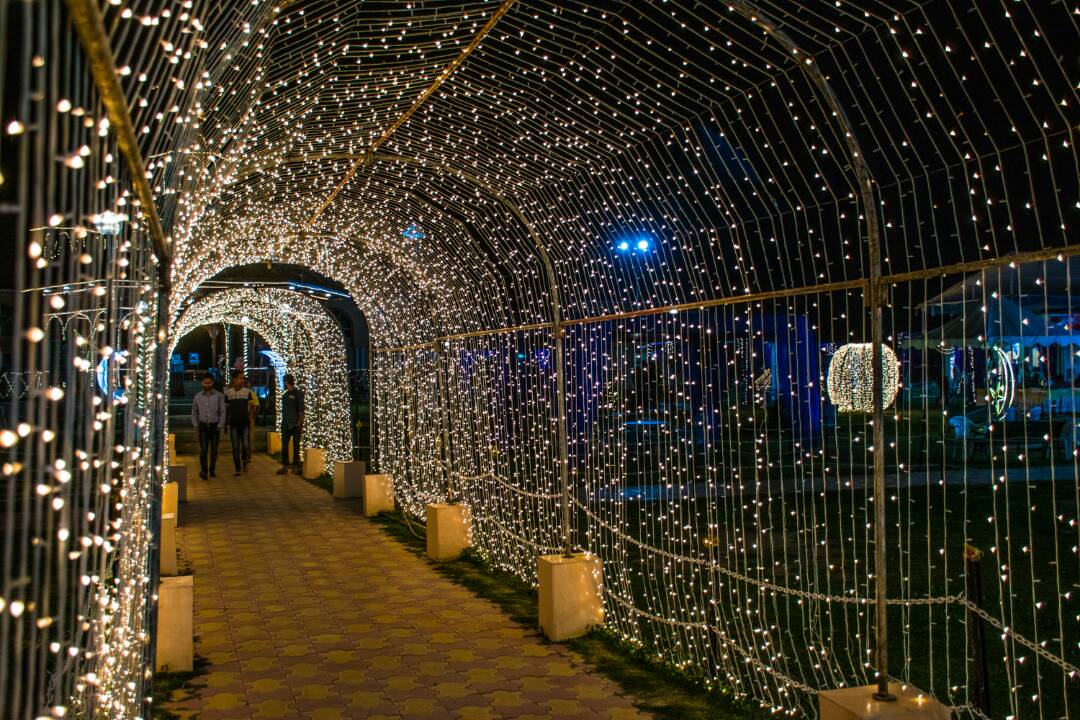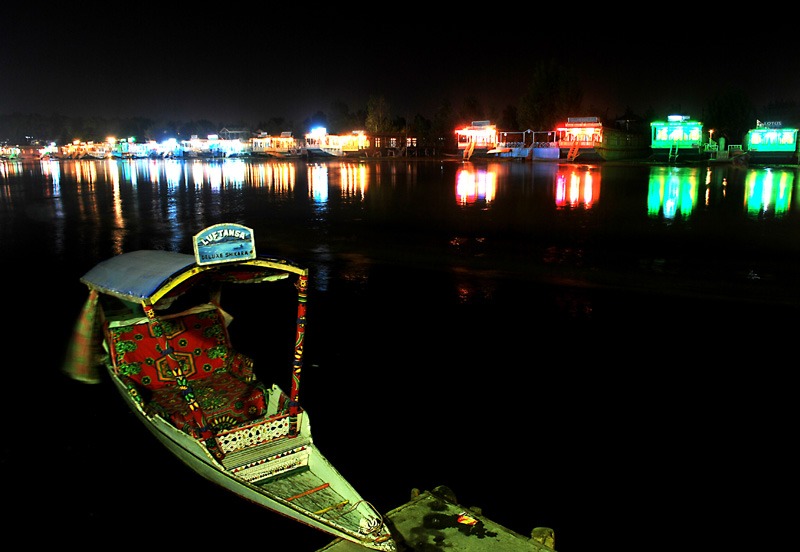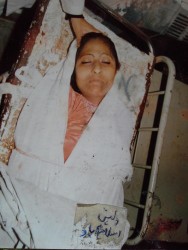A sudden change in the lifestyle of people in the city of Srinagar, happened when a bride was gang raped along with her pregnant aunt in 1990. Today uneasy calm, followed by bouts of violence, keeps a healthy public life shifting on its feet.
Srinagar: A long day of fasting is coming to an end as the sun lowers to set behind the clouds that have covered the skies. It is an hour to Iftaar, the time when fasting Muslims break their fast, and there is commotion in Masood Kanth’s house.
The family has decided to go out to break their fast at a restaurant, but Masood is worried that the clouds may shower upon them.
Talking about his days when he would stay away for home, late into the night, Masood says, “My children ask me about how I spent my younger days. Was I, like them, staying in all day, and night? To which I reply, No!”
Masood, along with his friends, has seen the face of the city, that is hard to imagine for most people in Kashmir. What the city would look like after dusk, spending time out with friends until their faces weren’t visible to each other, now seem like distant memories, or a dream, to Masood.
“Moving out of the house in late evening hours seems odd to my children, and to me as well. A fear has taken seat in every Kashmiri’s heart, and going out at night here is full of risks,” he points out.
On their way to the restaurant which is located in an uptown area, Masood sees quite a movement on the roads. Finally after reaching the restaurant and settling down on his chair he realizes the mixed nature of the crowd around him.
People of his generation, are taking the ‘iftaar party’ culture as something new to them, this trend has surfaced in the past few years.

A decorated walkway at the Kashmir Haat. FPK Photo/Furqan Khurshid
“There might be a revival of what we call ‘night life’ but not to a huge extend, people are still scared, it is just a handful of young people who are trying to make the most of whatever little ‘normal’ situation we have here,” he adds.
Masood was a working journalist back in his days; from the groovy nights, to the fear of walking in day light, he has witnessed it all. He says moving out and seeing all these people sitting together to eat is all together a new experience for him.
After finishing the dinner, Masood along with his wife and two daughters, hop in their car and directly stop outside their home. The dead of the night, and men with guns on the road, is something that makes him repeat the holy verses is his head while driving back home.
However, looking at the situation from a different perspective makes the other side of the coin visible.
Mariam (name changed) who just flew back to Kashmir, her birthplace, finds it normal for people to be outside late in the evening.
“I go out with my family, and the friends I have here, and we join in this blessed month of Ramazan to eat together. It’s just like sharing the food we make in our kitchen with our neighbors,” Mariams says. “It nourishes our relations and gives a sense of being bestowed with love,” she adds.
The young generation of Kashmir has found ways to normalize abnormal situations. The young crowd that is seeking to revive the night life in Kashmir seems to be more carefree than the ones who were once a part of late night outs, and movie theaters, in the times gone by.

Illuminated Dal Lake at night.
Yawar who is 20 years old is pursuing his graduation in SSM College. Growing up listening to stories told by his father, a tale of how people would stay out late at night, and how there would be gatherings after the sun had set, he wonders if it is possible today.
“Looking back at my father’s adolescent days and comparing those with the times we are going through, it makes me realize that the situation in Kashmir was once normal, and that is hard to imagine today,” he says.
The scenario was relatively better for women in this particular aspect too. Mothers would not wait on the streets, or peeping out from small openings of their gates, for their children to return home until an incident shook everyone across the lengths and breadths of valley.
A sudden change in the lifestyle of people in the city of Srinagar, especially the nightlife and the sense of safety that is important for it, happened when a bride was gang raped along with her pregnant aunt in 1990. Staying out in the evenings was no more safe, every function and event which would otherwise talk place after the sun set, was being commenced in the bright day light.

Mubeena Gani, a bride gang raped by forces in 1990.
The situation over the past decade showed signs of improvement, but that appears to be on a slippery slope as of now. People had started venturing out after the dark, parties to show influence and power in their lawns, to make people feel normal even when the situation wasn’t that assuring, was beginning to come back to Srinagar.
The fear has not gone, even though it is ignored many times. Even now, many people brush away a fear before stepping outside their houses. The government has made some efforts to revive the spirit of festivity during and after Iftaars, but has not been successful in providing a sense of safety to the people.
In an attempt to project the situation as ‘normal’, the government organised a Ramzan festival at Kashmir Haat. A visit to the ‘iftaar to sahoor’ market confirms its grand failure, official reports however maintain that it is a huge success.
“We offer packages and a carefully selected menu which is meant only for iftaar,” says Altaf who is a head researcher at 7C’s café and fine dine, a posh uptown place for food. “Around 150 customers visit us at iftaar hours. The crowd is usually young people, but many do come with their families and colleagues, people organizing college reunions, and youngsters have also been coming here for iftaar this Ramzan, and the crowd is growing each year,” adds Altaf.
Usama Burza, owner of 14th avenue café, grill and bakeshop, agrees. “But we are not immune to the disturbances that are happening in Kashmir lately, the flow of costumers gets effected whenever there is slight change in the situation here,” he says, pointing to the uncertainty that looms over business, and public and social spheres in Kashmir.












